Charleston Currents #12.18 | March 16, 2020
HOT PINK: Fuchsia seems to be in vogue around Charleston as azaleas are popping out all over with the hottest of pinks. Enjoy the seasonal display.
 TODAY’S FOCUS: Management of an epidemic requires surveillance monitoring
TODAY’S FOCUS: Management of an epidemic requires surveillance monitoring
COMMENTARY, Brack: Renew commitment to protecting civil rights of all Americans
IN THE SPOTLIGHT: Charleston RiverDogs
NEWS BRIEFS: Schools across the state close to deal with coronavirus
FEEDBACK: Send us a letter or two
MYSTERY PHOTO: White flower among azaleas
CALENDAR: Call first before you head out
Management of an epidemic requires surveillance monitoring
By Fred Palm, contributing editor | Our South Carolina emergency plan is an all-event skeleton. Depending upon the particular threat, customization to the plan is made. Even in the overall skeleton plan, any epidemic event is a second thought found in an appendix (14-1) to the general model for action. In these plans, there is no pandemic appendix, so with COVID-19, we presumptively start as if the virus is an infection.
 An epidemic requires a swift model that leaps ahead of the presenting of requests for medical services. State-level authorizations and equipment requests passed up the line will not be delivered in time. In fact, little time exists if an infection doubles every five days.
An epidemic requires a swift model that leaps ahead of the presenting of requests for medical services. State-level authorizations and equipment requests passed up the line will not be delivered in time. In fact, little time exists if an infection doubles every five days.
Social science surveys estimate the size of something, the incidence in the population. In this election season, for example, we are bombarded with polling data about what percentage of voters, likely Republicans or Democrats, are expected to behave in a particular way. We are even told the error or range of the estimate.
Epidemiologists, however, model statistically the progressions that yield this critical understanding: A leap ahead in time and space to deploy resources and institute policy actions relevant to the situation on the ground. For example, a varying disease incidence of 0.2 percent, 2 percent, 12 percent or 22 percent implies vastly different control strategies. Closing schools is not needed at the lowest end of the range and too late at the upper end. The anticipatory leap ahead forecast supports the needed adaptation policy choice.
Gov. Henry McMaster’s plan is to test only people with symptoms. It is good to know who is positive, so they isolate themselves. But if we stop there and do not systematically sample the entire population using a big fat surveillance program, it will be too late for actions needed to stanch COVID-19. Instead, late actions will be out-raced by the fast spread of the virus.
Here’s what could help now: Panels of volunteer citizens (say 300,000) could report their condition day by day for serial tracking using a free tool like SurveyMonkey. Out of those aggregated individual reports are identified the hot COVID-19 locations. Over time, we will learn how fast the spread rate is and the policy response that is needed there. This is called survey reporting, which hospital arrivals can confirm.
The novel coronavirus is a public health emergency that needs to use a war model, not the flood model. War models anticipate the enemy while flood models respond to the situation. McMaster, apparently taking the lead of his political patron in Washington, D.C., to stay in his good graces, needs to do more. He should call Dr. James Clements, the president of Clemson University, to gear up the Clemson Survey Team, the Palmetto Cluster Computing Center and the Clemson/MUSC Artificial Intelligence Project team. Then he should promptly hire a general who will win at war. State Epidemiologist Linda Bell needs to get test kits distributed widely and start surveillance monitoring as if our lives depend on it. Why? Because they do. We need to know how big this storm is and where it is with better accuracy than day by day recording counts of people infected.
Edisto Island resident Fred Palm is a retired professor of analytics at the John Jay College Graduate School of Public Management. Earlier in his career, he was a developer of the New York City Mayor’s Management Report, survey research director and academic research director who used multivariate clustering and regression modeling to predict behavior.
Renew commitment to protecting civil rights of all Americans
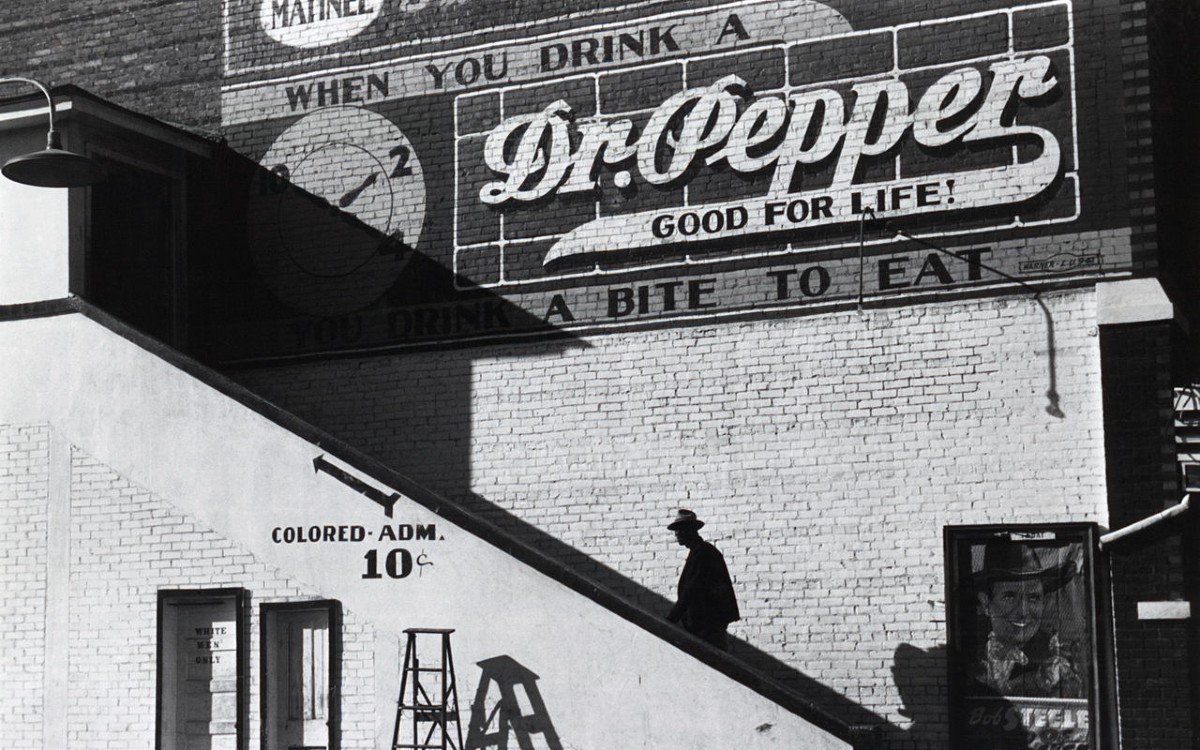
A “colored” entrance to a Mississippi theater, 1939. Wikipedia
By Andy Brack, editor and publisher | The forced segregation that stained the American South isn’t as far in the past as you may think.
 A century ago when your great grandparents were toddlers or were raising their own, lynchings were commonplace. It wasn’t until after World War II that an American president, Harry Truman, ended segregation in the armed forces. The U.S. Supreme Court ruled separate was not equal in public schools in 1954, although in reality it took one or two more decades for many schools to integrate, including the segregated elementary school I attended in south Georgia.
A century ago when your great grandparents were toddlers or were raising their own, lynchings were commonplace. It wasn’t until after World War II that an American president, Harry Truman, ended segregation in the armed forces. The U.S. Supreme Court ruled separate was not equal in public schools in 1954, although in reality it took one or two more decades for many schools to integrate, including the segregated elementary school I attended in south Georgia.
The push to end the stain of segregation got a big start in South Carolina, U.S. District Judge Richard Gergel writes in his fascinating 2019 book, “Unexampled Courage: The Blinding of Sgt. Isaac Woodard and the Awakening of President Harry S. Truman and Judge J. Waties Waring.”
 Gergel traces the case of a black Army sergeant traveling home in uniform from World War II. He was beaten, blinded and arrested in Batesburg, S.C., after a bus driver reported the veteran for talking back when refused a bathroom stop.
Gergel traces the case of a black Army sergeant traveling home in uniform from World War II. He was beaten, blinded and arrested in Batesburg, S.C., after a bus driver reported the veteran for talking back when refused a bathroom stop.
Isaac Woodard’s case ended up getting national attention, including notice by Truman, who was outraged that a man who fought for freedom would be crippled because of the Jim Crow South. Despite the approaching election year, Truman established the first presidential commission on civil rights.
By 1948, the commission published a 178-page report that outlined the importance of protecting and preserving the civil rights guaranteed to all Americans. About the same time, a brave federal judge in Charleston, also vexed by the Woodard case and simmering injustice, started to issue rulings that stabbed at the core of segregation in politics and schools. The dissent of the late U.S. District Judge J. Waties Waring in a Clarendon County school desegregation case had a strong impact and, many say, was the blueprint for the U.S. Supreme Court’s landmark Brown v. Board ruling that separate schools were not equal.
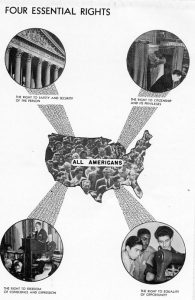 Two South Carolina incidents — the tragic blinding of a veteran and a ruling that sent a case to the Supreme Court — are at the root of the end of legal segregation in the country.
Two South Carolina incidents — the tragic blinding of a veteran and a ruling that sent a case to the Supreme Court — are at the root of the end of legal segregation in the country.
Truman’s landmark report called for freedom from fear for all Americans. “The preservation of civil liberties is a duty of every Government — state, Federal and local,” the report said. “Wherever the law enforcement measures and the authority of Federal, state, and local governments are inadequate to discharge this primary function of government, these measures and this authority should be strengthened and improved.”
The report then outlined four essential rights of all Americans — the right to safety and security, the right to citizenship and its privileges, the right to freedom of conscience and expression, and the right to equality and opportunity. Authors shared myriad suggestions for improving civil rights, such as desegregating the armed forces, strengthening the civil rights power of the U.S. Justice Department, reducing injustice, curbing police brutality, enhancing voting rights and updating citizenship laws.
Many of the recommendations in the report were implemented, but its soul — of dealing with immigration, citizenship, voting rights, injustice, due process, equal opportunity and equal protection under the law — still haunts America. Just look at headlines on any day of the week.
America needs to renew its commitment to the ideals in Truman’s Committee on Civil Rights.
“I have one priority that applies to all civil rights,” U.S. Rep. Jim Clyburn, D-S.C., told Statehouse Report this week. “It is the message on my billboards that reads: ‘Making America’s greatness accessible and affordable for all.’
“This priority applies to education: make it accessible and affordable; health care: make it accessible and affordable; housing: make it accessible and affordable. Any civil rights issue should be addressed in terms of accessibility and affordability.”
Failing to finish the work of civil rights protections for all Americans violates the country’s basic principles, said State Rep. Gilda Cobb Hunter, D-Orangeburg. But she warned a renewed commitment to civil rights “isn’t going to fare any better than the old one without a commitment to change things.”
Let’s have the courage of Woodard, Truman and Waring and make change for a more perfect union.
Andy Brack is the editor and publisher of Charleston Currents and Statehouse Report. Have a comment? Send to: editor@charlestoncurrents.com
Charleston RiverDogs
 The public spiritedness of our underwriters allows us to bring Charleston Currents to you at no cost. This issue’s featured underwriter is the Charleston RiverDogs.
The public spiritedness of our underwriters allows us to bring Charleston Currents to you at no cost. This issue’s featured underwriter is the Charleston RiverDogs.
In 2019, the team finished in second place in its league with a 73-66 record and had, as Club President Dave Echols explained in March, a great year.
- Learn more about the RiverDogs.
- NOTE: The start of the season has been delayed due to the coronavirus. We’ll let you know when it’s back on track. Here is the 2020 schedule as originally planned.
The Lowcountry’s leader in sports entertainment, Charleston RiverDogs baseball is an attractive, affordable medium for your group or business. The RiverDogs develop the next major league stars for the 27-time World Champion New York Yankees at one of the finest ballparks in Minor League Baseball — Joseph P. Riley, Jr. Park.
Three short words sum up the everyday approach taken by the Charleston RiverDogs front office. The brainchild of club President Emeritus Mike Veeck, the nine-letter phrase “Fun Is Good” is meant to be a guideline and daily reminder of how employees should approach their jobs and in turn capture the imagination of the fans to turn them into repeat customers.
- Visit the ‘Dogs online at: RiverDogs.com
Schools, colleges across S.C. close to deal with coronavirus
Staff reports | Gov. Henry McMaster announced Sunday that all of the state’s public schools, colleges and technical colleges will close starting today as a health response to growing concerns about the novel coronavirus, COVID-19. The institutions will remain closed through March 31.
“I urge that public gatherings both indoor and outdoor be limited to 100 people or less,” he said, adding that local elections scheduled for March and April also would be postponed.
On Friday, the governor issued a state of emergency for South Carolina following President Trump’s national declaration of a state of emergency earlier that day.
As of Sunday, there were 28 identified presumed-positive cases of COVID-19 novel coronavirus in South Carolina, according to the state Department of Health and Environmental Control
“We emphasize the importance of practicing disease prevention measures and following recommendations for social distancing to protect our community as a whole,” said the state’s epidemiologist, Dr. Linda Bell, in a press release.
- Learn more about what’s happening with the coronavirus via the Charleston City Paper.
- FAQ about coronavirus from the city of Charleston. (good resource)
In other news briefs:
Filing period opens March 16. And speaking of election filing period: The 2020 candidate filing period opens noon, March 16, and closes noon, March 30. All Senate seats and all House seats are up for election this year. Learn about candidate qualifications here.
1988 law found unconstitutional. A federal judge struck down a South Carolina law Wednesday that prohibited the discussion of same-sex relationships in public school sexual education classes after a group of LGBTQ advocates filed suit against the state, saying the law unconstitutionally affected non-heterosexual students. Read more.
Tracking rape kits passes the Senate. After passing the Senate, a rape-kit tracking bill will soon head toward Gov. Henry McMaster’s desk. The House and Senate will need to agree on differences between their versions of the bill. Editor and Publisher Andy Brack penned a column earlier this year urging passage of the bill. Read it here. It is unknown what the fiscal impact of the bill will be, according to a Revenue and Fiscal Affairs Office report.
- Have a comment? Send to: editor@charlestoncurrents.com
Got something to say? Let us know by mail or email
We’d love to get your impact in one or more ways:
Send us a letter: We love hearing from readers. Comments are limited to 250 words or less. Please include your name and contact information. Send your letters to: editor@charlestoncurrents.com. | Read our feedback policy.
Tell us what you love about the Lowcountry. Send a short comment – 100 words to 150 words – that describes something you really enjoy about the Lowcountry. It can be big or small. It can be a place, a thing or something you see. It might be the bakery where you get a morning croissant or a business or government entity doing a good job. We’ll highlight your entry in a coming issue of Charleston Currents. We look forward to hearing from you.
White flower among azaleas
What in the world is this white flower doing among azaleas? And just what in the heck is it? Send your best guess to editor@charlestoncurrents.com. And don’t forget to include your name and the town in which you live.
 Our last Mystery Photo, “Light and reflection,” was a snapshot offered by Alaska reader Thomas Jacobsen of the Muses pool during the Night of a Thousand Candles at Brookgreen Gardens.
Our last Mystery Photo, “Light and reflection,” was a snapshot offered by Alaska reader Thomas Jacobsen of the Muses pool during the Night of a Thousand Candles at Brookgreen Gardens.
Congratulations to alert sleuths who recognized the scene or figured it out using Internet tools: George Graf of Palmyra, Va.; Chris Brooks and Stephanie Paetsch, both of Mount Pleasant; Wendy Kulick of Kiawah Island; Hollie Anderson, Delia A. Smith, Kristina Wheeler and Chris LaForce, all of Charleston; Ross Lenhart of Pawleys Island; Allan Peel of San Antonio, Texas; and Jay Altman of Columbia.
Peel provided lots of context: “Today’s mystery photo was taken during one of the annual ‘Nights of a Thousand Candles’ holiday season lighting events in Brookgreen Gardens, near Myrtle Beach, SC. The holiday lights are framing the ‘Fountain of Muses’ bronze sculpture group and fountain, originally created by Swedish sculptor Carl Milles.
“Each year, the ‘Nights of a Thousand Candles’ event transforms Brookgreen Gardens into a magical, wintry paradise. Each weekend at dusk in December, visitors can stroll amid the soft glow of more than 5,500 hand-lit candles, countless sparkling lights, and mesmerizing, lighted displays of gardens and fountains.
“Voted one of the top 10 ‘Best Public Gardens’ in the U.S. by TripAdvisor, Brookgreen Gardens is home to beautiful gardens, historical sites, world-renowned art collections, and native animals in their own, on-site zoo. A little known fact is that Brookgreen Gardens has largest outdoor display of American sculptures in the world.
“The group of bronze sculptures and fountains depicted in the mystery photo was originally created from clay moldings by Carl Milles (1875-1955) between 1949 and 1954. The sculptures were completed in 1955 and installed in the cafeteria of the Metropolitan Museum of Art in New York City shortly after Milles death (click here for a 1955 photo of this installation at the Metropolitan Museum). It was then moved to its current home at Brookgreen Gardens in 1982.”
- Send us a mystery: If you have a photo that you believe will stump readers, send it along (but make sure to tell us what it is because it may stump us too!) Send it along to editor@charlestoncurrents.com.
Call first before you head out
Staff reports | The novel coronavirus is causing all sorts of confusion and uncertainty, particularly with long-scheduled and fun events.
![]() We advise you to contact any organizers before you head out to ensure that the events are going to occur. As best as we can tell, the following events still are a go — but these are subject to change!
We advise you to contact any organizers before you head out to ensure that the events are going to occur. As best as we can tell, the following events still are a go — but these are subject to change!
Walk for Water: Now virtual. Water Mission’s Walk for Water on March 21 has been converted from an actual walk to a virtual walk due to uncertainties around the coronavirus. Learn more and participate.
Online jazz: Forte Jazz Lounge in downtown Charleston is offering music enthusiasts the chance to watch live shows online through virtual ticketing with suggested donations of $10. The feed starts about 15 minutes before shows. When the virus scare is done, all donors will be invited to a big party blowout at the club with the Joe Clarke Big Band. Learn more.
CANCELLED: Pet Fest 2020: 11 a.m. to 4 p.m., March 21, Mount Pleasant Palmetto Islands County Park. This year’s Pet Fest will feature a day of exhibits, demonstrations, experts, contests, adoptable pets, and more at Charleston’s premier pet festival. Pet Fest attendees who adopt a pet from the Charleston Animal Society at the event will receive an Individual Park Pass (value $30) to select county parks.
CANCELLED: Quintet to perform for parks: 5:30 p.m., March 21, McLeod Plantation Historic Site, James Island. A quintet of the Charleston Symphony will perform “LIsten to Spring” as a fundraiser for the Charleston County Parks Foundation. Guests are invited to enjoy popular music under the stars at the historic site from 5:30 p.m. to 8:30 p.m. The Charleston Symphony Brass Quintet will take attendees on a musical journey from New Orleans to Broadway, with detours to Europe and South America. Tickets are $75. Proceeds will go to support the foundation’s Pass It Forward Project. Tickets are available at CharlestonCountyParksFoundation.org.
Charleston 350 Series: 6 p.m., April 2, Charleston Museum, Meeting St., Charleston. Dr. Daniel Littlefield, Carolina Professor of History at the University of South Carolina, will speak about the first enslaved people that were brought to Carolina and why the institution eventually thrived as it did in the colony. Registration is encouraged but not required. More info.
Lowcountry Cajun Festival: Noon to 6 p.m., April 5, James Island County Park, James Island. This ragin’ Cajun Festival features a full day of zydeco music, authentic Cajun and Creole food, children’s activities and more! Charleston’s best Cajun restaurants, caterers and food trucks will cook up a variety of delicious foods. After tasting all of the delicious food, festival-goers can dust off their dance moves and get dancing to non-stop Zydeco and Cajun music, performed on stage throughout the day. Admission is $15. No pets. For more information, call 843-795-4386 or visit CharlestonCountyParks.com.
ONGOING
Local photographers on display: Through March 31, North Charleston City Gallery in North Charleston City Hall. The City of North Charleston’s Cultural Arts Department will showcase photographs by Dawnita Hall of North Charleston and Nicole Robinson of Charleston in an exhibit that runs for the month..
Visual Vigil: Through May 3, City Gallery, Prioleau Street, Charleston. The City of Charleston Office of Cultural Affairs presents Visual Vigil, a new exhibition by artist Susan Perkins. The show is designed to be an active conversation on the effects of mass shootings; the installation is made up of contemplative pieces that represent the lives lost and communities affected by mass violence from 1903 through present day. An opening reception will take place March 20 at 5 p.m. An artist’s talk will be held on 2 p.m. March 28. A community discussion about gun violence and gun reform will be held 6 p.m. April 21. More info.
Early morning bird walks at Caw Caw: 8:30 a.m. every Wednesday and Saturday, Caw Caw Interpretive Center, Ravenel. You can learn about habitats and birds, butterflies and other organisms in this two-hour session. Registration is not required, but participants are to be 15 and up. $10 per person or free to Gold Pass holders. More: http://www.CharlestonCountyParks.com.
- If you have an event to list on our calendar, please send it to feedback@charlestoncurrents.com for consideration. The calendar is updated weekly on Mondays.
If you like what you’ve been reading, how about considering a contribution so that we can continue to provide you with good news about Charleston and the Lowcountry. Interested? Just click the image below.
OUR UNDERWRITERS
Charleston Currents is an underwriter-supported weekly online journal of good news about the Charleston area and Lowcountry of South Carolina.
- Meet our underwriters
- To learn more about how your organization or business can benefit, click here to contact us. Or give us a holler on the phone at: 843.670.3996.
OUR TEAM
Charleston Currents offers insightful community comment and good news on events each week. It cuts through the information clutter to offer the best of what’s happening locally.
- Mailing address: 1316 Rutledge Avenue | Charleston, SC 29403
- Phone: 843.670.3996
Charleston Currents is provided to you weekly by:
- Editor and publisher: Andy Brack, 843.670.3996
- Contributing editor, common good, Fred Palm
- Contributing editor, money: Kyra Morris
- Contributing editor, Palmetto Poem: Marjory Wentworth
- Contributing editor, real estate: Digit Matheny
- Contributing photographer: Rob Byko
SUBSCRIBE FOR FREE
Subscriptions to Charleston Currents are free.
- Click here to subscribe.
- Unsubscribe. We don’t want to lose you as a reader of Charleston Currents, but if you must unsubscribe, you will have to do it through the email edition you receive. Just go to the bottom of any of your weekly newsletters and click the “unsubscribe” function. If that doesn’t work, please send us an email with the word “unsubscribe” in the subject line.
- © 2008-2020, City Paper Publishing, LLC. All rights reserved. Charleston Currents is published every Monday by City Paper Publishing LLC, 1316 Rutledge Ave., Charleston, SC 29403.


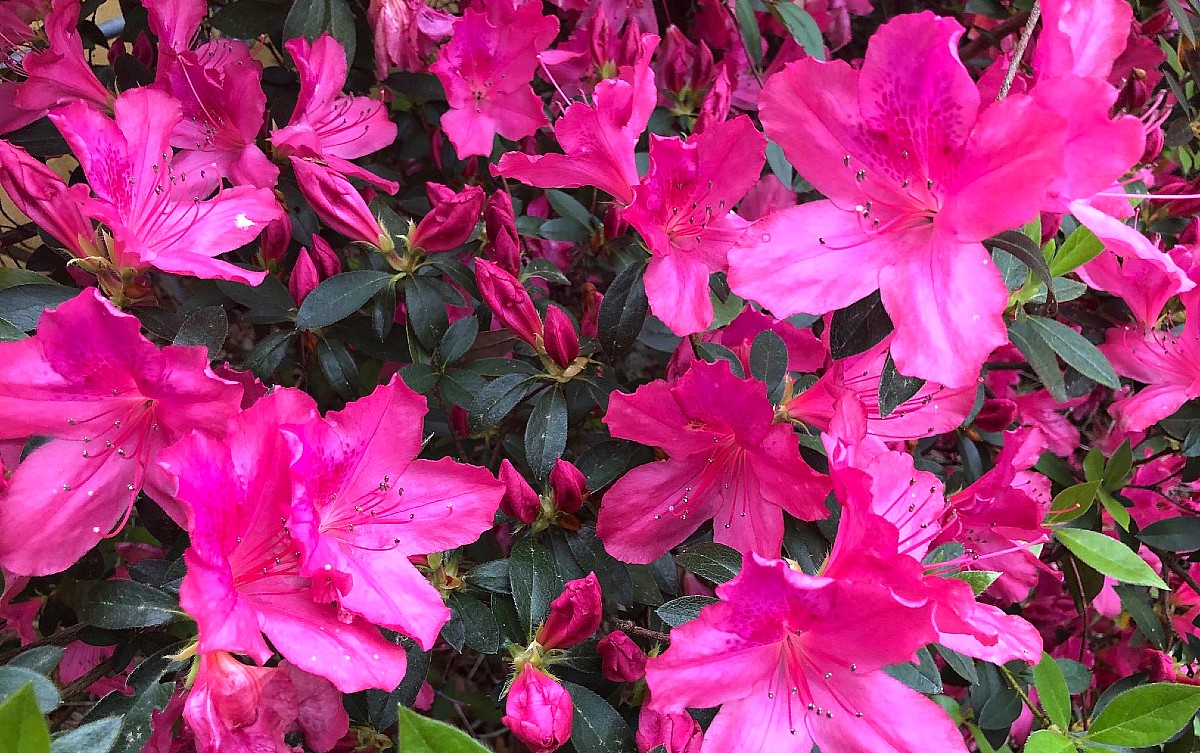

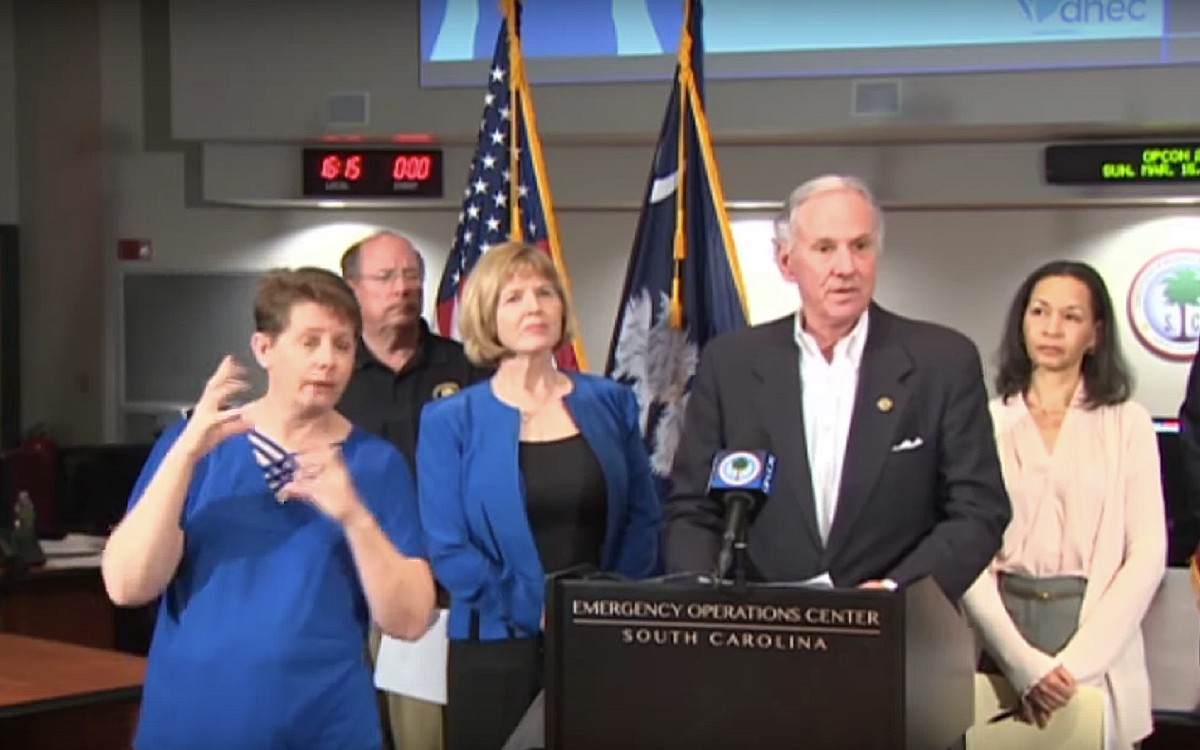
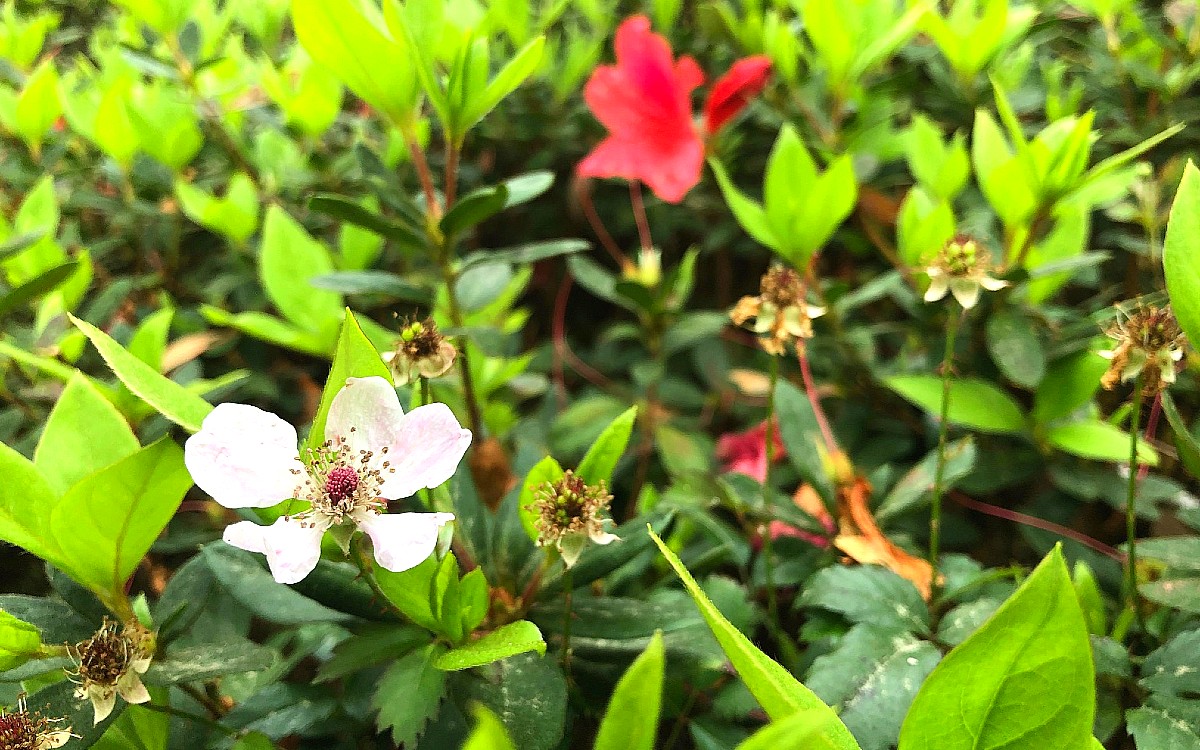

 We Can Do Better, South Carolina!
We Can Do Better, South Carolina!
























